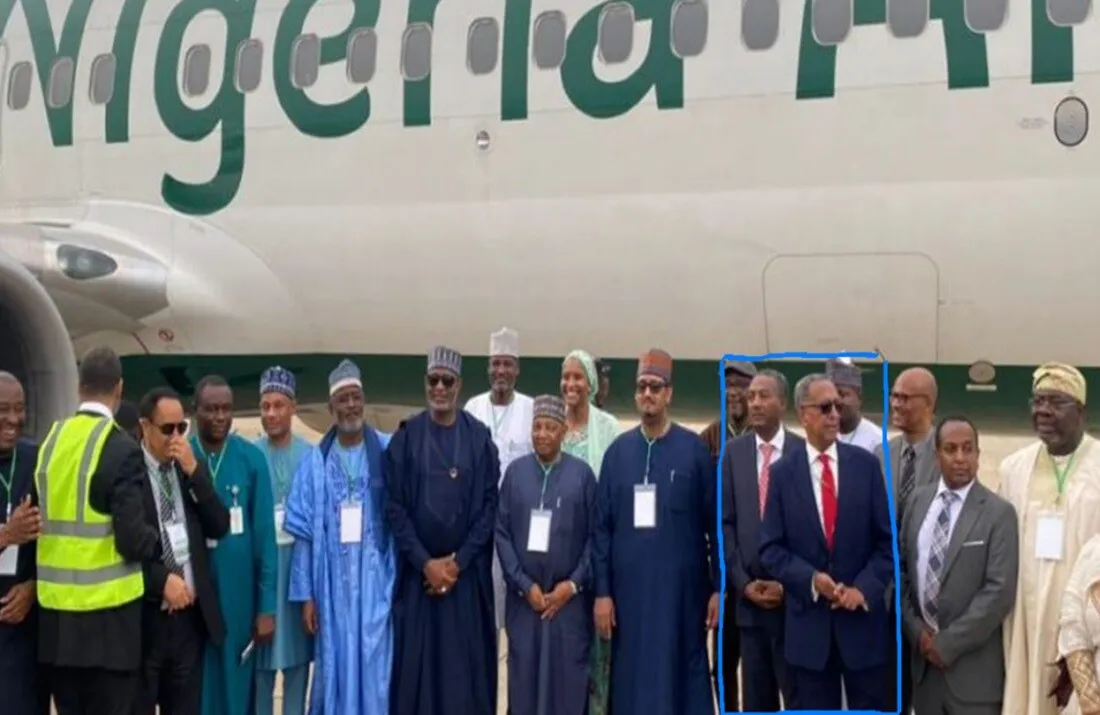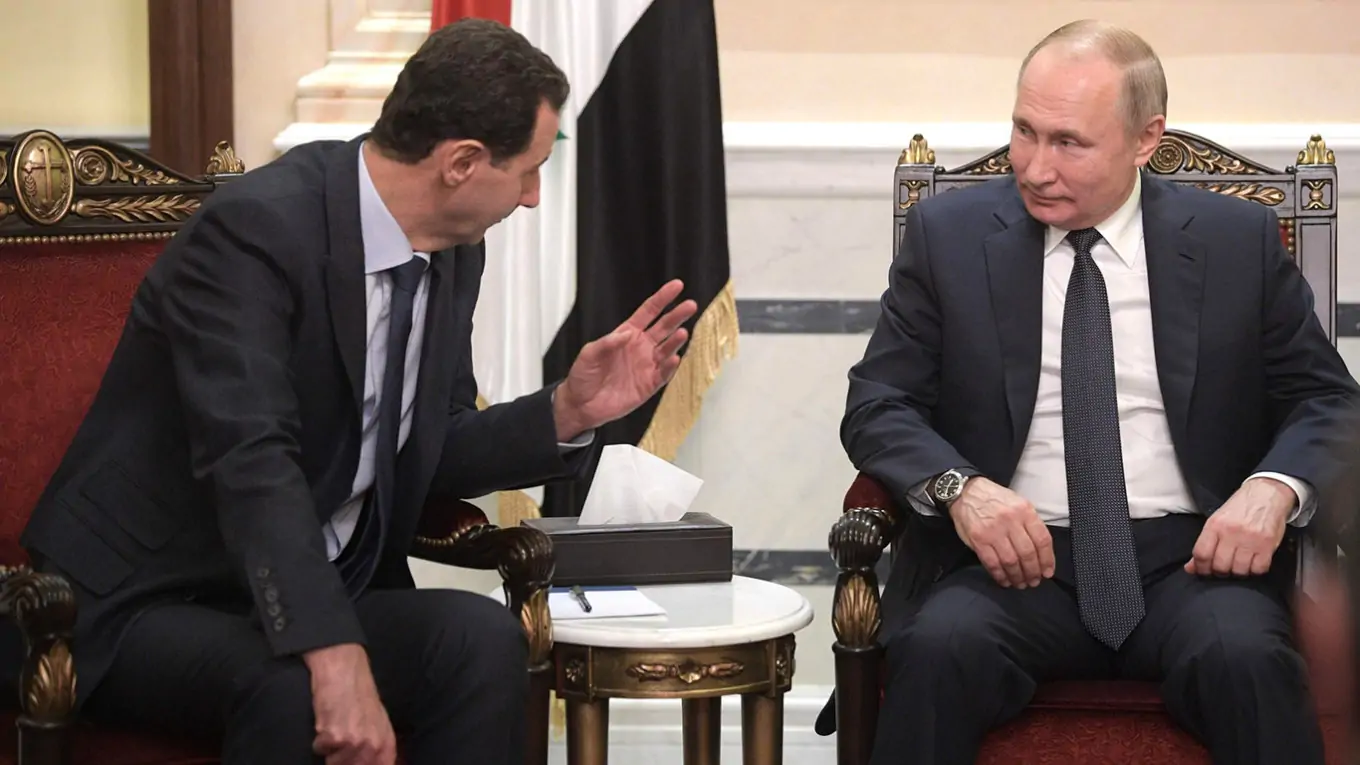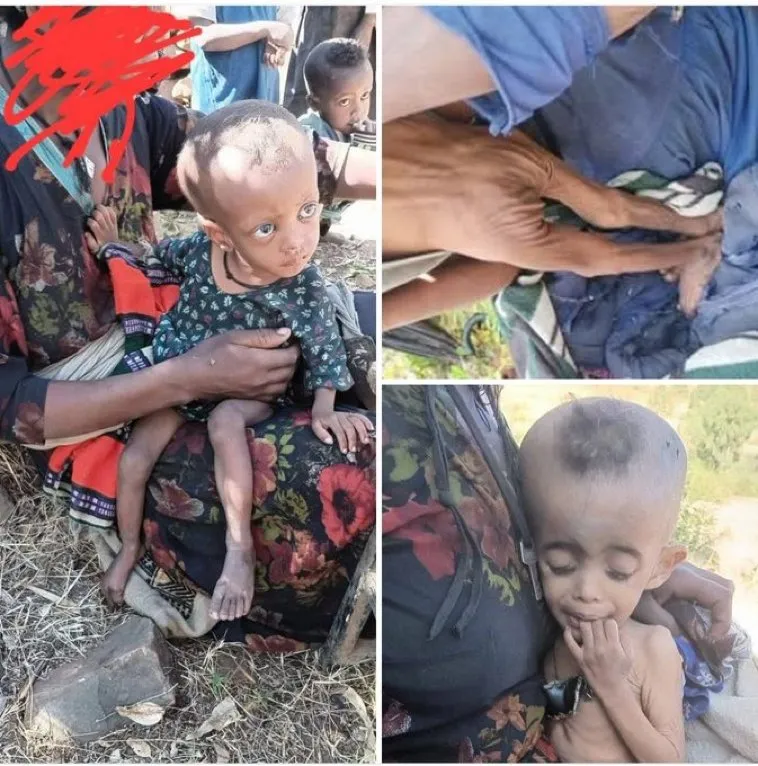 Ethiopian Americans protesting in front of the Justice Building in Olympia on November 7, 2024, against the leadership of Ethiopian Prime Minister Abiy Ahmed. SOURCE: Amhara Association of Seattle
Ethiopian Americans protesting in front of the Justice Building in Olympia on November 7, 2024, against the leadership of Ethiopian Prime Minister Abiy Ahmed. SOURCE: Amhara Association of Seattle
Olivia Thiessen
Lynnwood Times
Political protesters in the vicinity of Seattle caused a significant slowdown of traffic on Interstate 5 on November 7, voicing their dissent against the leadership of Ethiopian Prime Minister Abiy Ahmed. A procession consisting of more than 50 vehicles, prominently displaying Ethiopian flags, moved at a reduced speed along the right two lanes of I-5 as they made their way toward Olympia.
The demonstration aimed to draw attention to the issues surrounding the Ethiopian government under Prime Minister Ahmed’s administration. The slow-moving convoy not only disrupted traffic but also served as a visible expression of the protesters’ concerns, highlighting the ongoing political tensions within Ethiopia.
“They did seem quite friendly,”KIRO reporterJames Lynch said at the scene. “They weren’t wearing any masks. They were flying the flag, and they’re about to pass me at this moment.”
Witnesses reported the demonstrators did not appear to directly interfere with traffic or create a blockade, but they did slow traffic as the convoy rolled at roughly 35 miles per hour. Others on the highway further slowed traffic, attempting to read signs and take pictures of the convoy. Some vehicles joined the convoy, flashing their lights and honking along.
“Stop Black Hitler,” and “End the Genocide” were some of the signs waved by protesters from their vehicle.
The protest came days after the Secretary of State Antony J. Blinken spoke to Ethiopian Prime Minister Abiy Ahmed about growing conflict within the Amhara region of Ethiopia. The nation has been embroiled in ceaseless civil conflicts since the overthrow of Emperor Haile Selassie in 1974.
Current Prime Minister Abiy Ahmed has been the center of political protest globally since he came to power in 2018. Upon his election, Abiy represented an end to ethnic federalism. He ended a 20-yearlong border crisis with Eritrea, landing him a Nobel Peace Prize in 2019.
But Abiy’s Prosperity Party has instead reinforced Ethiopia’s decades-old system of ethnic federalism, where each territory is ruled by the majority ethnic group.
This system leaves many minority groups within the territories to be persecuted in politically motivated genocides. Many, including some of the I-5 protesters, consider Abiy’s leadership reminiscent of Nazi Germany for that reason.
One of the groups suffering under these politically motivated attacks is the Amhara, a predominantly Orthodox Christian, semitic-speaking ethnic group. Armed conflict broke out in the Amhara region in August 2023, and Amhara civilians were massacred in the fight.
“The Ethiopian armed forces’ brutal killings of civilians in Amhara undercut government claims that it’s trying to bring law and order to the region,”said Laetitia Bader, deputy Africa director atHuman Rights Watch. “Civilians are once again bearing the brunt of an abusive army operating with impunity.”
The Amhara are not the only group suffering under Abiy’s militaristic rule. In 2020, Abiy’s government became embroiled in a regional civil war with the opposing Tigray People’s Liberation Front (TPLF). Scholarsestimateroughly 500,000 people died as a result of the Tigray war, many from violence, mass extrajudicial executions, and war-related famine.
In an investigation by CNN, nine doctors in Ethiopia and one in a Sudanese refugee camp say they have seen “an alarming increase” of rape and sexual assault cases in Tigray since Abiy’s troops launched an attack in the region.
When questioned about his troops involvement in sexual violence against Ethiopian women, Abiyresponded, “The women in Tigray? These women have only been penetrated by men, whereas our soldiers were penetrated by a knife.”
One of the doctors indicated the attack on Tigray appears to be racially motivated.
“The women that have been raped say that the things that they say to them when they were raping them is that they need to change their identity – to either Amharize them or at least leave their Tigrinya status … and that they’ve come there to cleanse them … to cleanse the blood line,” hesaid.
Abiy’s military has left a trail of blood since he took leadership in 2018, and Ethiopian-Americans are looking to the United States to help. Many have criticized Biden’s response, which has largely been imposing an emergency status upon Ethiopia and sending aid money, which many claim ends up in the hands of Abiy’s military.
Since the beginning of the 2024 fiscal year, the United States has sent nearly $243 million in humanitarian assistance to Ethiopia, according to theU.S. Department of State. In October, USAID discovered that much of the aid sent to Tigray in particular was stolen.
“Thousands of tons of donated grain were being diverted to commercial mills and markets throughout Ethiopia. . . . While the total loss may never be known, a Tigrayan official has said that more than 7,000 tons of wheat were stolen – enough grain to feed more than 450,000 people for a month,” according to oneinvestigation.
U.S. officials labeled the event as “one of the biggest thefts and diversions of food aid ever documented.”
Ethiopian-Americans are taking note of Biden’s response and turning in another direction for answers. Days before the election,Ethiopian-Americans ralliedfor president-elect Donald Trump, despite many previously voting Democrat, citing Biden’s inaction for the switch.
“As an Ethiopian American, from the geopolitical perspective, I think that the current Biden-Harris administration has been very neglectful toward the genocide that’s been happening in Ethiopia, for instance. It happened under their watch,” said Ethiopian-American Tedlam Mulako, who attended the pro-Trump rally.
Others cited their distaste for Democrat leaders’ progressive policies, as many Ethiopian immigrants are religious conservatives, predominantly Muslim or Christian.
It is unclear if Donald Trump plans to intervene in the Ethiopian crisis, as he has not discussed any official policies on the matter. He has, in the past, threatened to cut U.S. aid to the nation, which would be a major blow to the nation’s welfare, as Ethiopia has received nearly $5.5 billion from the U.S. since 2021, according toUSAID.
Right now, the number of people in Ethiopia who rely on humanitarian aid to survive exceeds20 million, including Somali and Sudanese refugees.



















May God bless you for being the first non-Ethiopian to report on the ongoing protest against the genocidal regime of Abiy Ahmed and his massacre of Amhara civilians.